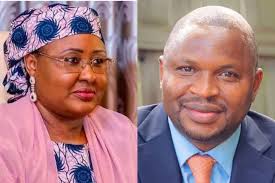The recent controversy between Professor Farooq Kperogi and former First Lady Aisha Buhari over an alleged divorce claim has reignited a critical conversation about journalistic ethics, professionalism, and responsibility. As someone who teaches aspiring journalists, I find this incident a powerful reminder of the standards we must uphold in both the classroom and the newsroom. Journalism is not just about breaking stories, it is about protecting truth, dignity, and trust.
At the core of responsible journalism are the fundamental ethical principles outlined in the Nigerian Code of Ethics for Journalists: Accuracy, Truthfulness, Fairness, Professional integrity, Respect for privacy, and the Protection of sources. These values are not theoretical; they are practical guides that shape how we gather, interpret, and publish information. A journalist’s credibility rests on the ability to report facts without distortion, bias, or harm, even when the subject involves public figures.
In Kperogi’s case, while he cited a reliable source regarding the supposed dissolution of the presidential marriage, his failure to verify the information through multiple, independent sources, and to balance it with the subject’s own voice, exposed a serious ethical gap. Journalism is not about who breaks the story first, it’s about who gets it right. The apology he later issued, acknowledging the emotional harm caused and the poor judgment in making the information public, underscores the consequences of relying on single-sourced, unconfirmed reports especially on sensitive personal matters.
As an educator, I consistently teach my students that; even in investigative and data journalism requires depth, diligence, and humility. A single source, no matter how credible, should never be the sole basis for public claims, particularly those that touch on personal life, health, or relationships. Respect for individual privacy and the need to weigh public interest against potential harm must be part of every editorial decision. These lessons are not abstract, hey are the ethical armor that protects journalists from becoming agents of misinformation or inadvertent harm.
This incident should not be dismissed as a personal error alone, but rather seen as a teachable moment for all in the media space. It illustrates the urgent need to reinforce ethical training in journalism education and newsroom culture alike. As we shape the next generation of journalists, we must teach them that integrity is more important than virality, and that verification is the firewall between journalism and gossip. Only then can we build a media industry worthy of the public’s trust.
Turaki Abdulhamid Yahya,
Writes From the Department of Mass Communication, Federal University Kashere, Gombe State.

























